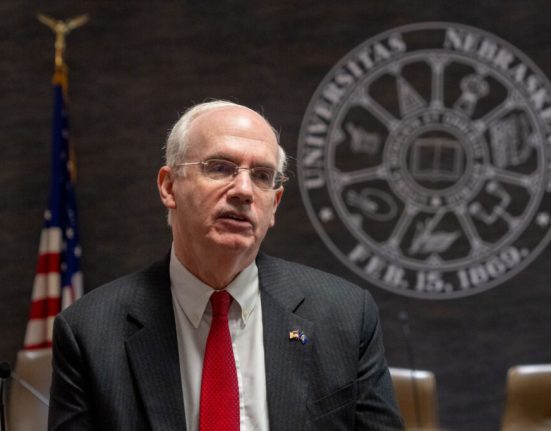For over two decades, I served as a crime victim advocate in King County, standing alongside survivors and families in the aftermath of some of the most serious violent crimes imaginable. I have sat with devastated, grieving parents as the person charged with murdering their child was arraigned in court. I’ve stood at the bedside of assault victims clinging to life in hospital rooms. I’ve supported loved ones of homicide victims as they delivered heartfelt victim impact statements before sentencing judges. I have witnessed firsthand the unbearable pain, paralyzing grief and deep trauma experienced by crime victims and their families.
Over the course of my career, I advocated for thousands of individuals and families in the pursuit of justice — trying to help navigate the complexities of law enforcement investigations, the criminal justice system and connecting them with support services like trauma counseling, support groups and nonprofit advocacy organizations. In 2023, I made the difficult decision to leave the work I loved because I could no longer be a part of a system that consistently treated victims with indifference, disrespect and a disturbing lack of compassion. I outlined my reasons in a Seattle Times op-ed: “Why I can no longer work on behalf of crime victims.”
Two years later, we are finally — maybe, possibly — beginning to see signs of progress. I’m cautiously hopeful that the pendulum is starting to shift back toward a more balanced, victim-centered approach.
Last month I attended King County’s first ever Summit on Crime Survivors. The Summit’s purpose was to amplify survivor voices and engage policymakers in looking at solutions to improve support systems by identifying service gaps and driving actionable change. This long-overdue gathering finally placed victims, survivors and their families at the center of the conversation. Participants filled the room, actively listening and talking about what victims of crime need and how systems have consistently failed them.
Survivors spoke with courage and honesty about their experiences — describing how they felt silenced in courtrooms, retraumatized by institutions meant to protect them, and left without access to trauma therapy or support networks. Again and again, they shared how the justice system consistently prioritized defendants over their needs and how trauma therapy and support networks are virtually nonexistent. Their stories, while deeply personal, echoed a broader and troubling pattern and one that is backed by data. Under the previous King County executive’s leadership, only 14% of a $63 million justice-related budget was allocated to services for victims and survivors. The remaining 86% was directed toward programs for individuals “impacted by the criminal legal system” — a term increasingly used to refer to criminal defendants. You know who else is truly impacted? Crime victims, first by the trauma of the crime itself, and then secondarily by the criminal justice system that treats them as an afterthought, offering little support, compassion or meaningful opportunity to be heard.
This stark imbalance is more than a budgetary oversight; it reflects a systemic failure to center those profoundly affected by the devastating impacts of violent crime. While millions have been funneled into offender-focused initiatives, critical resources for survivors have steadily disappeared. Victims are too often left without the trauma-informed care and long-term support essential for healing. Despite their central role in the justice process, survivors have been consistently sidelined and left with nowhere to turn.
When someone commits a crime, it is an intentional act — it is a person making a deliberate choice to hurt and cause harm to another. The offender does something to someone; the victim is the one who has something done to them. Yet in recent years the narrative has become distorted. While it’s true that many individuals who engage in criminal behavior have experienced trauma themselves, the narrative that “hurt people hurt people” should not be used as an excuse for criminal behavior. While many people have experienced trauma, including adverse childhood experiences, the vast majority do not go on to commit acts of violence.
In recent years, crime survivors, especially those who seek justice and accountability from the person who chose to inflict violence, are too often portrayed as the problem, as if wanting accountability makes them the “bad guy.” If a survivor wants a defendant to be held in custody or pay financial restitution, they’re often unfairly portrayed as unforgiving and failing in their healing journey. Grief and healing are deeply personal and complex. There is no single path, no right or wrong way to navigate it. No one has the right to tell a crime survivor how they should think, feel or heal.
As voters prepare to elect a new King County executive, I urge you to think about crime victims. Which candidate will acknowledge the pain and lasting impact crime victims, survivors and their families endure? Who will take meaningful action, not just offer words? King County deserves a county executive who will be a responsible steward of taxpayer dollars, not someone who hands out blank checks to politically connected, offender-focused organizations with little oversight or accountability for how funds are spent or who is running these programs. Some of these problems were discussed in the Dec. 19, 2024, Seattle Times editorial “More bad news for King County violence-prevention programs.”
The next county executive must be someone who will not turn away from the hard truths, who will prioritize victims, not with lip service, but with funding, leadership and commitment. I know the profound damage a human can inflict on another. I also know that with the right support, people are capable of remarkable resilience and healing. With leadership that understands this, the impacts of violence can be lessened and recovery made possible.
King County can no longer afford indifference. Now is the time to elect a leader who will treat crime victims, survivors and their families with dignity, prioritize their needs and make meaningful investments that reflect the values of our community. Fourteen percent will not suffice.







